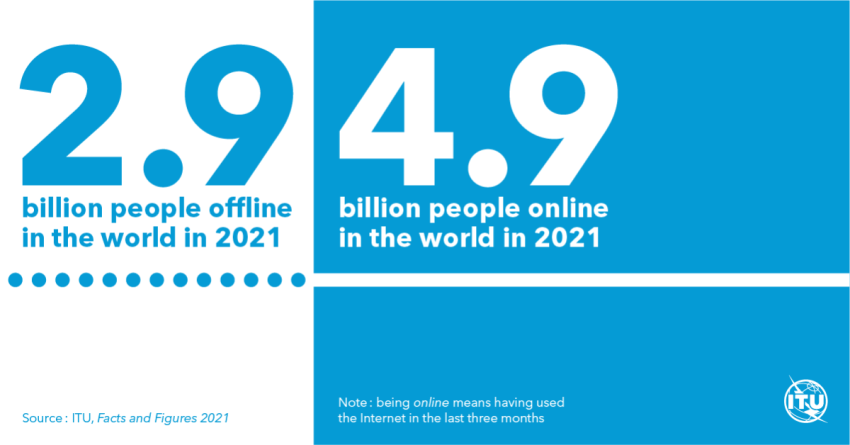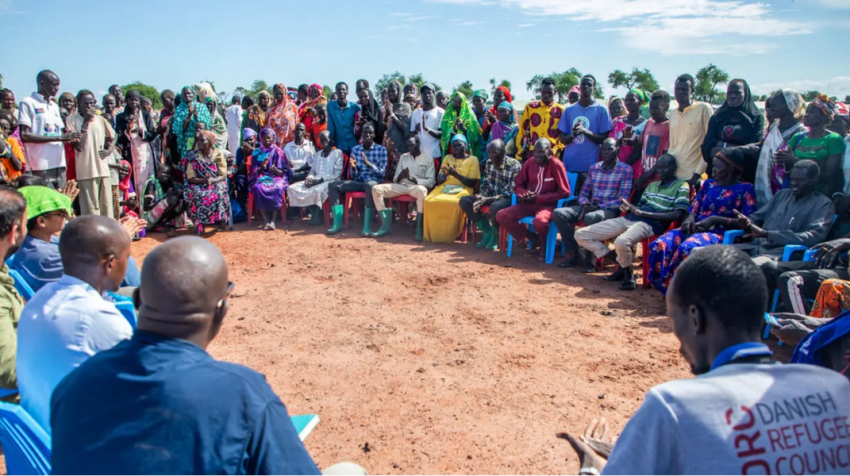The International Telecommunication Union (ITU), the United Nations specialized agency for information and communication technologies (ICTs) recently released its Facts & Figures 2021 report - a snapshot of the most important ICT indicators, including estimates for the current year.
“While almost two-thirds of the world's population is now online, there is a lot more to do to get everyone connected to the Internet," said ITU Secretary General Houlin Zhao.
“ITU will work with all parties to make sure that the building blocks are in place to connect the remaining 2.9 billion. We are determined to ensure no one will be left behind."
Key findings
-
There was a strong global growth in Internet use due to a ‘COVID connectivity boost’, with the estimated number of people who have used the Internet surging to 4.9 billion in 2021, from an estimated 4.1 billion in 2019.
-
This comes as good news for global development. However, ITU data confirm that the ability to connect remains profoundly unequal. An estimated 37 per cent of the world’s population – or 2.9 billion people – have still never, ever used the Internet.
-
The unusually sharp rise in the number of people online suggests that measures taken during the pandemic – such as widespread lockdowns and school closures, combined with people’s need for access to news, government services, health updates, e-commerce and online banking, brought an estimated 782 million additional people online since 2019, an increase of 17 per cent.
-
The 2021 edition of Facts and Figures, ITU’s annual overview of the state of digital connectivity worldwide, shows the number of Internet users globally growing by more than 10 per cent in the first year of the pandemic – by far the largest annual increase in a decade.
-
Strong growth since 2019 was largely driven by increases in developing countries, where Internet penetration climbed more than 13 per cent. In the 46 UN-designated Least Developed Countries (LDCs), the average increase exceeded 20 per cent.
Learn more:




